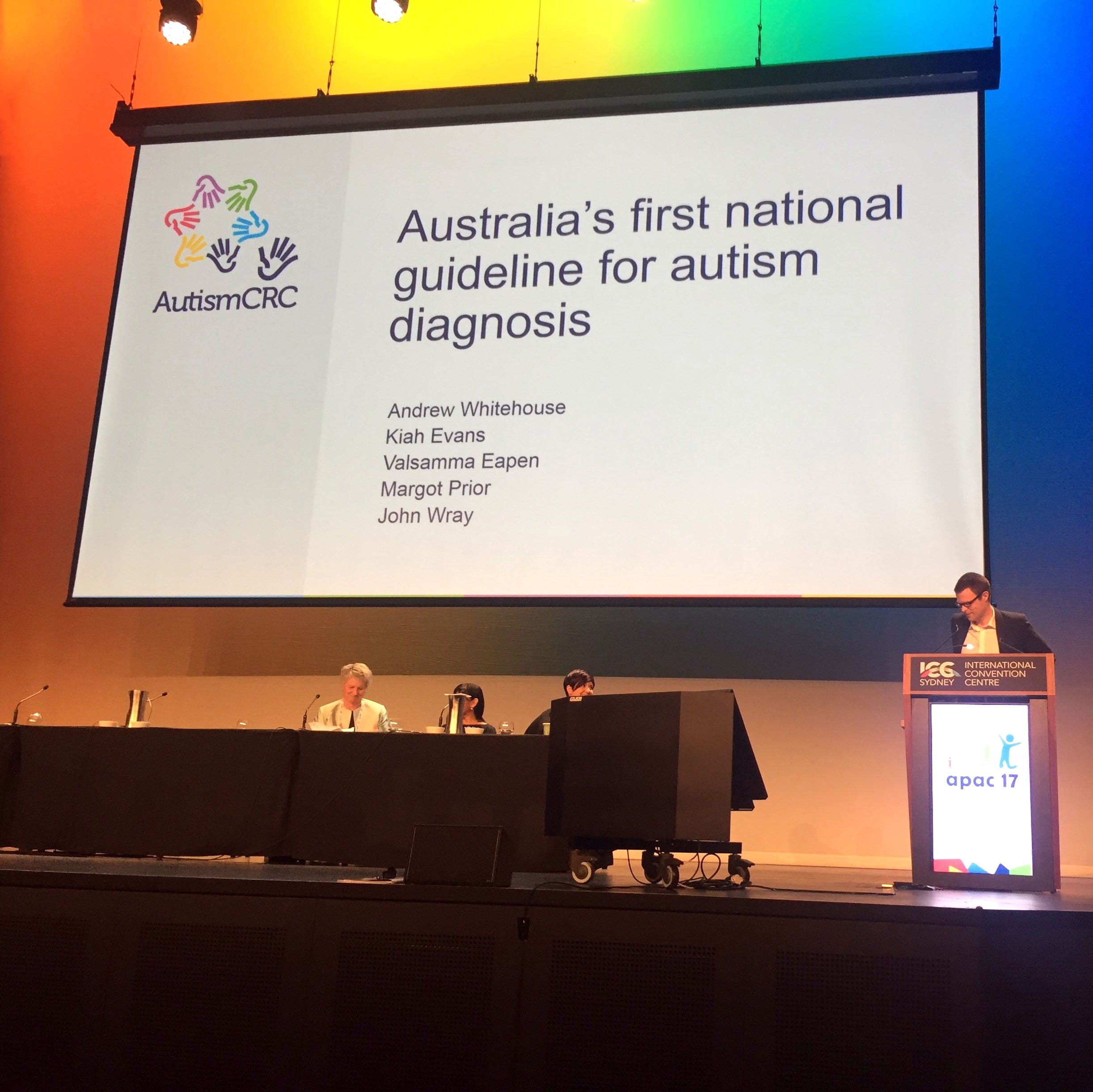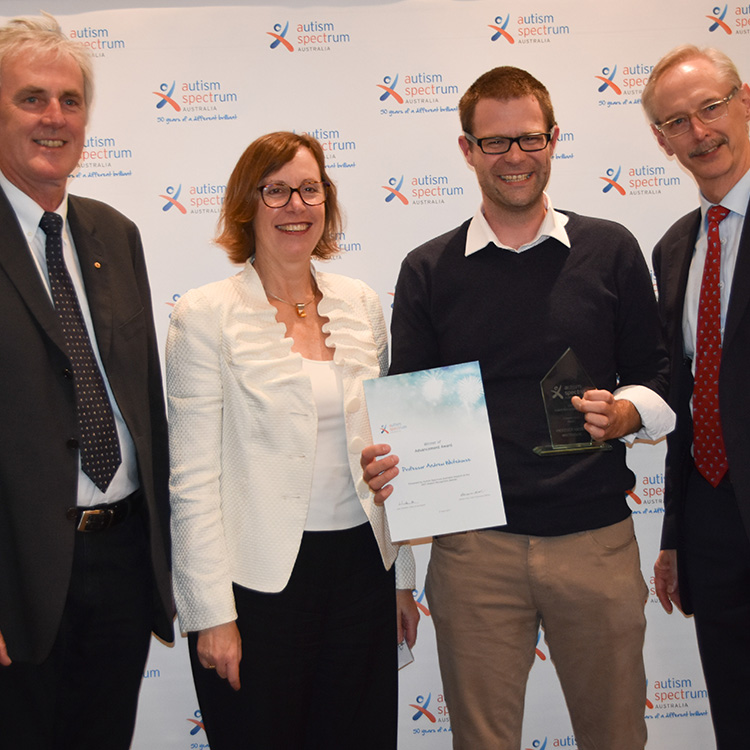Search
Research
Reliability, Validity and Acceptability of the PEDI-CAT with ASD Scales for Australian Children and Youth on the Autism SpectrumThe PEDI-CAT (ASD) is used to assess functioning of children and youth on the autism spectrum; however, current psychometric evidence is limited. This study aimed to explore the reliability, validity and acceptability of the PEDI-CAT (ASD) using a large Australian sample.
Research
Empathy and Autism: Establishing the Structure and Different Manifestations of Empathy in Autistic Individuals Using the Perth Empathy ScaleThere is a common mischaracterisation that autistic individuals have reduced or absent empathy. Measurement issues may have influenced existing findings on the relationships between autism and empathy, and the structure of the empathy construct in autism remains unclear.

News & Events
Autism researcher named 40 under 40 finalistAndrew Whitehouse has been listed in the WA Business News 40 under 40 awards recognising accomplished and dynamic young leaders in Western Australia.

News & Events
Australia’s first draft national guideline for autism diagnosis releasedAustralia’s first draft national guideline for autism diagnosis has today been released for public consultation.
Research
Maternal Serum Vitamin D Levels During Pregnancy and Offspring Neurocognitive DevelopmentNew research links poor language to lack of Vitamin D in womb.

News & Events
The Kids Research Institute Australia researcher awarded prestigious Eureka awardProfessor Andrew Whitehouse awarded the most prestigious award in the country for young researchers – the 3M Eureka Prize for Emerging Leader in Science.
Research
Absence of association between maternal adverse events and long-term gut microbiome outcomes in the Australian autism biobankMaternal immune activation and prenatal maternal stress are well-studied risk factors for psychiatric conditions such as autism and schizophrenia. Animal studies have proposed the gut microbiome as a mechanism underlying this association and have found that risk factor-related gut microbiome alterations persist in the adult offspring.
Research
Low-intensity parent- and clinician-delivered support for young autistic children in Aotearoa New Zealand: a randomised controlled trialAotearoa New Zealand does not provide publicly-funded intensive autism support. While parent-mediated supports are promising, children and families may also benefit from direct clinician support. We tested the efficacy of a low-intensity programme involving parent- and clinician-delivered support for autistic children.
Research
Sex-Specific Effects of Birth Weight on Longitudinal Behavioral Outcomes: A Mendelian Randomization Approach Using Polygenic ScoresIt is unclear whether sex differences in behavior arising from birth weight (BW) are genuine because of the cross-sectional nature and potential confounding in previous studies. We aimed to test whether sex differences associated with BW phenotype were reproducible using a Mendelian randomization approach, i.e., association between polygenic score (PGS) for BW and behavior outcomes across childhood and adolescence.

News & Events
Autism researcher wins accolade for science videosProfessor Andrew Whitehouse has been awarded an Autism Spectrum Australia Recognition Award for his work communicating scientific findings to families.
